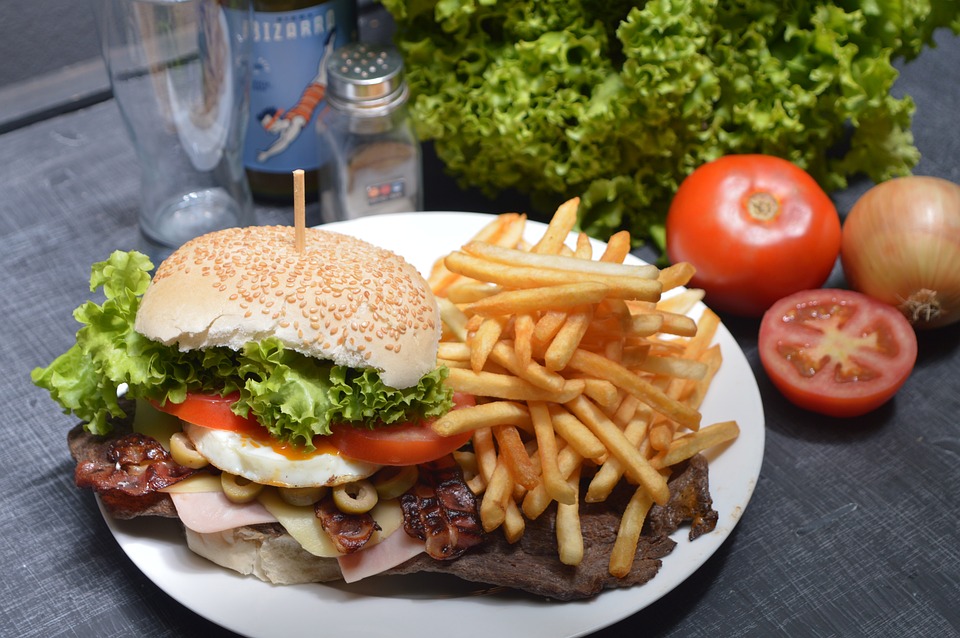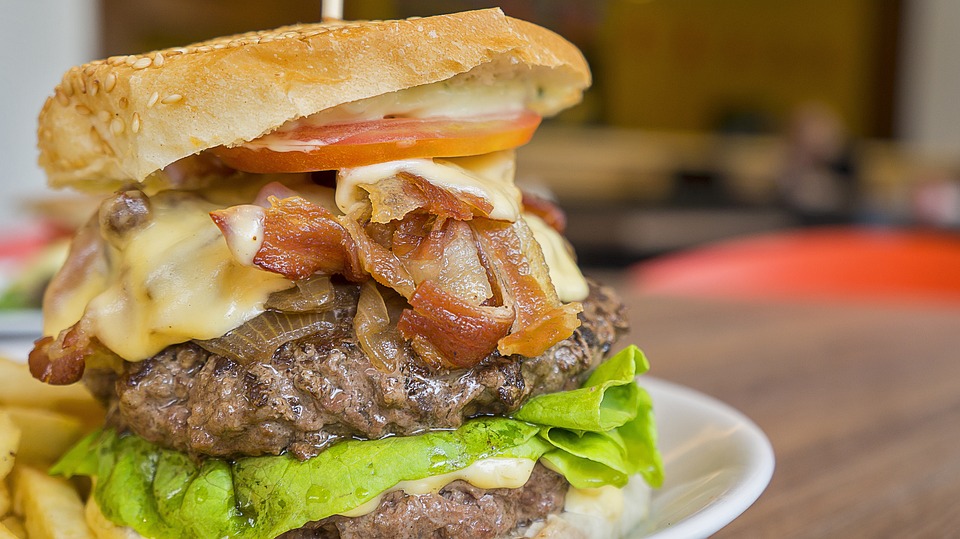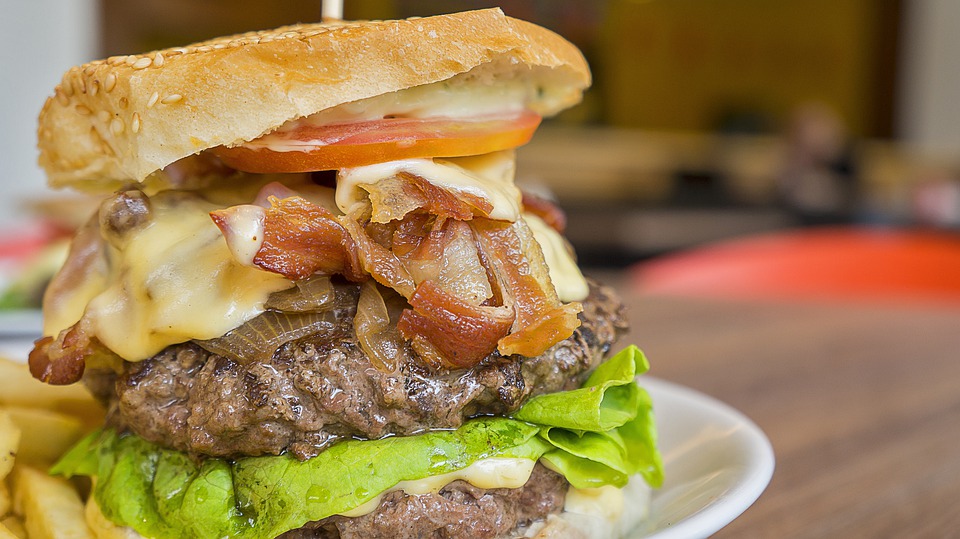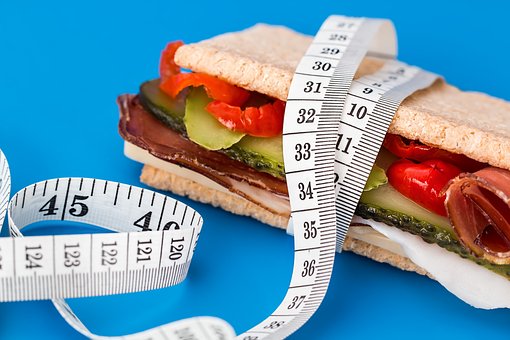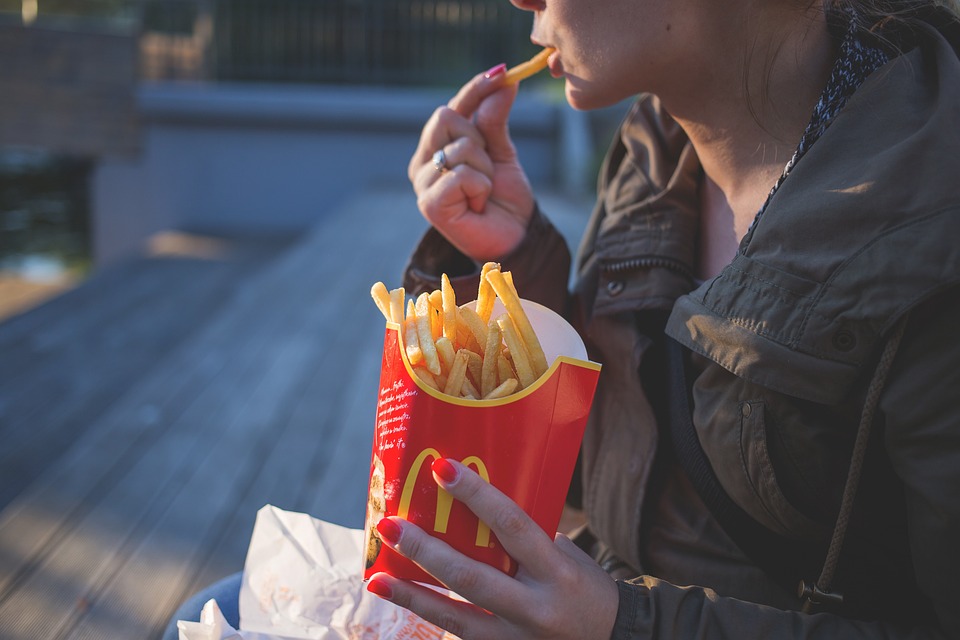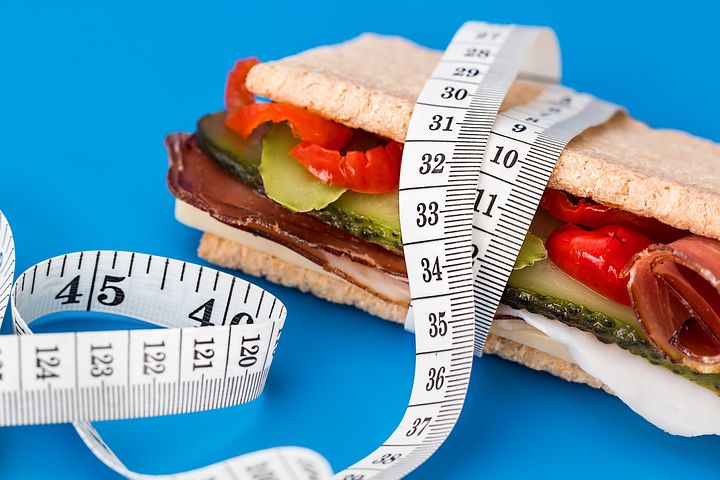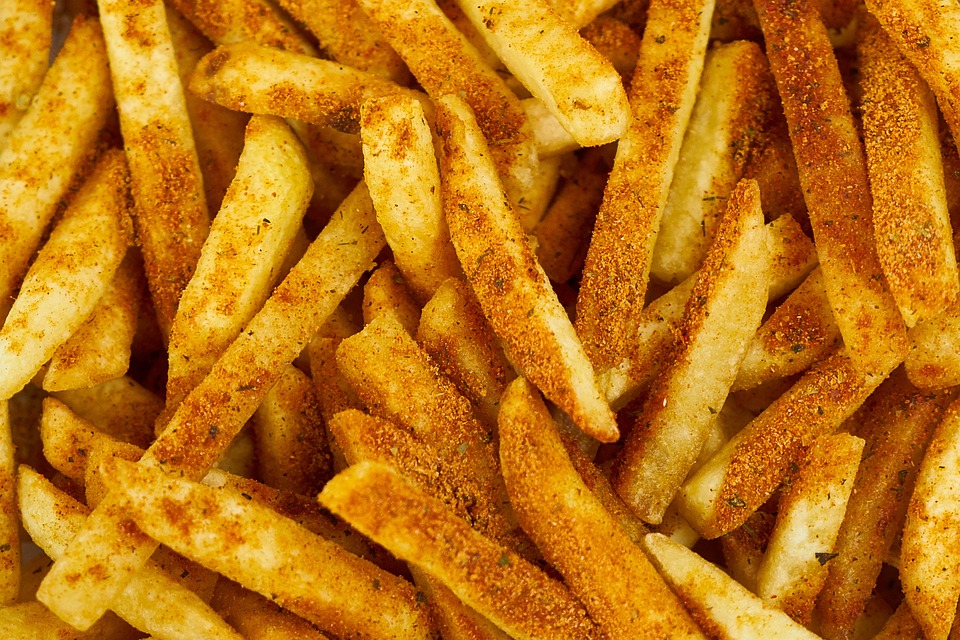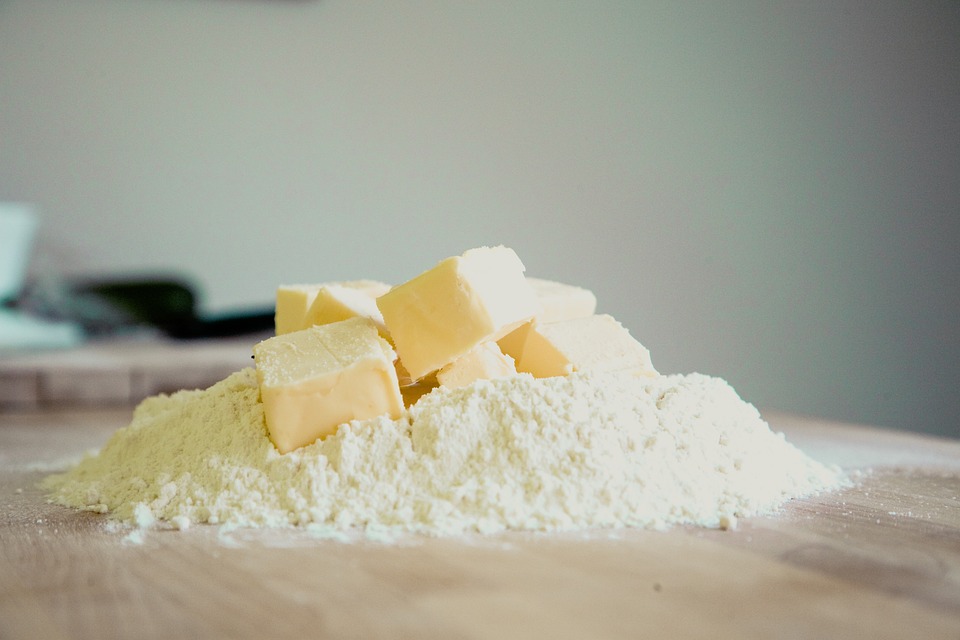
How it Began…
The fear of saturated fat began in the 1950s when Ancel Keys published a paper linking saturated fat and cholesterol with rising rates of heart disease. The problem, as this article explains, was his cherry-picking of available data:
”Keys’ theory was based on a study of six countries in which higher rates of heart disease were correlated with higher saturated fat intake. Although his theory was contradicted by data from 16 other countries, he chose to ignore it. If he had selected different countries, the data would have indicated that a higher percentage of calories from fat decreases the number of deaths from coronary heart disease.
The featured article illustrates that the 22 countries with available data at the time of the study found that the consumption of saturated fat had the lowest risk of heart disease.
Many people have realized that trans fat, which is found in margarine, vegetable shortening, and partially hydrogenated vegetable oils, is actually worse for your health than saturated fat.
Healthy Fat Surprise: Saturated Fats
Now for some real fun. What would be your favorite fatty foods to eat if you weren’t worried about any health consequences? My clients look shocked and amazed when I tell them that butter and sour cream are safe and good for them. Although they may not realize it, they may be the one that is loved. We have been “good” for 30 years. We used to think that “bad” fats were terrible for us, so we cut back on them and started stocking up on “safe” vegetable oils and hydrogenated fats instead. But it turns out that was a terrible idea. Heart disease, cancer, and diabetes are all on the rise.
Now that you’re prepared, here’s some good news about cream cheese, whole-fat yogurt, chicken skin, and coconut milk. This will be tough for you to hear. Part of it is the term Saturated Fats. Let me give it a new spin. Let’s call it SAT: short for SATISFYING. Saturated fats have a complete molecular structure, whereas omega-6 and omega-3 polyunsaturated fat molecules have an incomplete structure that resembles a comb with broken teeth. Their density gives SATs their undisputed stability. This is the reason why olive oils do not go bad, which is something that has always been known.
Could these disreputable fats actually be healthful? Yes! A study found that trans fats in margarine and shortening are linked to heart disease, but also found that saturated fats are not as risky as previously thought. There is no scientific evidence linking saturated fat intake to an increased risk of coronary death. The SATs are a more reliable and longer-lasting energy source for your heart than carbs. Saturated fats have been shown in many studies to protect against strokes.
These creamy fats not only protect our tissues from rancidity but also preserve the omega-3 fats in our brains and arteries. SATs can help to offset the negative effects of having too much omega-6 fat in your diet, and may even help to reduce levels of the most damaging omega-6 fat, arachidonic acid.
Results of four different studies – three on type II diabetics and one on mildly obese men and women – found that high saturated fat, low carb diet was effective. The results of the study showed that all of the participants had improvements in cholesterol levels, weight, and insulin levels. But these studies are really just confirming common sense. People have traditionally consumed large amounts of saturated fat without any negative effects on their physical or mental health. We did, too. In 1909 we consumed about 26 pounds of saturated fat per year and nine pounds of omega-6 fats (on top of what was in eggs, meat, etc.). In 1998, we consumed less than 9 pounds of saturated fat and 66 pounds of omega-6 fat! SATs are not our problem. The omega-6 vegetable oils are the problem.
SATs are safe to cook with because they don’t toxify at high temperatures like vegetable oils do. SATs are great for providing energy to cells gradually and steadily as needed. This prevents your blood sugar levels from fluctuating, which means your mood and energy levels will be more stable. Plus your craving for carbs drops off. Saturated fat is an excellent, stable, stress-reducing energy source that athletes can use to improve their performance.
Our obesity epidemic is partly due to SAT deprivation. Without the satiety that comes from eating food, we tend to overeat the carbohydrates and vegetable oils that we do allow ourselves. Eating refined carbs and using vegetable oils can lead to weight gain and a variety of health problems.
Saturated fat not only makes us more endurance, but it also strengthens our immune system, which is the opposite of what low-fat foods do. Most of the world uses ghee (clarified butter), coconut, and palm oils for cooking. The people who use these oils are much healthier and have fewer degenerative diseases.
These vitamins are unable to be absorbed into our bodies without the help of carrier saturated fats. Nor can calcium! Spinach contains a lot of calcium, which is not absorbed as well unless it’s eaten with butter. Same principle with collard greens and bacon fat.
What’s my personal favorite SAT? Butter is very nutrient-dense, containing 10 vitamins, 10 minerals, 18 amino acids, and 11 types of fat. It can be hard to know where to start when discussing all the nutrients in butter. The avocado is very rich in vitamin A, which aids in the delivery of nutrient to the eyes. Night vision is entirely dependent on having enough vitamin A. Vitamin A regulates the hormone progesterone, which provides many benefits including mood regulation, fertility, etc. The letter “A” also stands for anti-tumor, and saturated fats like butter help the body absorb and use vitamin A in this life-preserving function. However, too many Omega-6 fats can block the absorption of vitamin A. Then there’s butter’s butyrate, the fastest-burning of all fats. This type of fatty acid is used extensively in your brain. For one thing, it serves as a base for making GABA, your natural Valium (GABA stands for gamma amino butyric acid.) It can also protect you from colon cancer and is used as a medicine in pre-cancerous colon problems to do just that.
SATs and Other Fats Fight Food Addiction
I started to learn more about healthy fats and how they can actually help you lose weight. I started to learn more about healthy fats and how they can actually help you lose weight, which helped me lose my fear of them. I have had twenty years of experience working with people who have eating disorders. Both groups of people have one thing in common. They avoid fats and love carbs. Anorexics continue to enjoy bagels, apples, and jellybeans, while overeaters often forego fat in order to gorge on carbs.
After years of trying different things and making mistakes, we finally found some methods of providing nutrition that works well. I found that increasing my protein intake was the first thing that helped to improve my mood, and stop me from overeating, and from becoming obsessed with certain things. We added lots of vegetables as the only carbohydrates allowed and tried to limit our intake of fats. We also expected our clients to regularly exercise. However, the low-fat and low-carbohydrate diet did not provide them with enough energy. This text is saying that the overeaters’ cholesterol levels were not always lowered by this. Previously, we avoided recommending nuts and seeds because they were often binged on. However, we found a new food plan that was successful. The diet was simply high in protein and vegetables with mostly saturated fat. No sweets (even fruit) or high-starch foods at all. The results show that there are no cravings, high energy, sturdy blood sugar levels, satisfaction with the food, mood fine, weight normalizing, and lower cholesterol!
In a report, cardiologist Robert Atkins stated that he experienced the same results as the research on the Atkins Diet, which is higher in fat and lower in carbs than what is recommended at the clinic.
The brain and body no longer crave fries and chips when they receive the specific fats they need. If simply adding saturated fats to your diet does not help to reduce your cravings for fatty foods, we recommend adding supplements of omega-3 fats (EPA and DHA), GLA, and the fat-soluble vitamins A, E, and D. (We test vitamin D levels first.)
What Is Carb-Fat?
Why does eating too many carbohydrates lead to an increase in body fat? If there are too many carbs, they are converted into stored fat in the muscle. If we exercise regularly and vigorously, the muscles can burn the carbs as fuel. Nowadays, people are more sedentary than ever before in history. So much carbohydrate gets converted into body fat that even people who work out every day can’t burn it all off. Triglycerides are thick substances that are created when sweets and starches are converted and carried through the bloodstream to the muscles. High-triglyceride levels pose more cardiovascular health risks.
The Good News About Cholesterol
Cholesterol is not a type of fat, but it does have many benefits for health and mood that are similar to those of saturated fat. A cholesterol level of between 180 and 260 seems to be ideal. If our cholesterol levels are either too high or too low, we can experience more health problems. However, more health problems occur when our cholesterol levels are too low, rather than when they are too high. A 40-year study of 4,000 people in Hawaii found that “patients who start to have lower cholesterol concentrations at an earlier age are at greater risk of death.” Many other studies concur.
Although it is commonly believed that cholesterol is harmful, it is actually a valuable nutrient for coping with stress. This is because cholesterol is the substance used by the adrenal glands to produce stress-coping hormones. Our sex hormones are also made from it. If you’ve been avoiding it stringently, you may have caused more problems than you realize.
People with low levels of cholesterol are more likely to experience depression, anxiety, irritability, violence, suicide, and insomnia. This is because cholesterol is essential for the production of serotonin, which is a natural antidepressant. Autistic children typically have low cholesterol levels, and cholesterol has been shown to be an effective treatment for autism. Cholesterol comprises a large portion of the brain, approximately 25%. Cholesterol is an antioxidant that protects our tissues, including our brain tissues and arteries. Cholesterol is not a type of fat, it is an alcohol that the body can create from many different types of food. Cows obviously make it from grass. Even if you have high cholesterol, avoiding fat is not an effective way to lower it. The Cholesterol Myths: Exposing the Fallacy That Saturated Fat and Cholesterol Cause Heart Disease and Good Calories, Bad Calories: Fats, Carbs, and the Controversial Science of Diet and Health are both great books that will give you a more in-depth look at the true story behind cholesterol.
Reasons to Eat MORE Saturated Fat
There are many benefits to consuming saturated fat, such as…
Make the Heart Happy
Philip and Patricia Grey point out in their book, “The Cholesterol Hoax,” “…there has never been even one convincing demonstration that saturated fat causes heart disease.” Although the belief that saturated fat contributes to heart disease is widely accepted, there is no scientific evidence to support this claim. As Philip and Patricia Grey explain in their book “The Cholesterol Hoax”, there has never been a single study that provides convincing evidence of a link between saturated fat and heart disease. Michael and Mary Dan Eades, MD explain:
” You may not have heard about saturated fat on many news sources, but it actually plays a couple of key roles in cardiovascular health. Saturated fat in the diet reduces levels of lipoprotein (a), which is strongly connected to the risk of heart disease. There is no current medical treatment to lower levels of Lp(a), however, it can be lowered by dietary means such as consuming saturated fats. Bet you didn’t hear that on the nightly news. Eating saturated fats also raises the level of HDL, which is considered the “good” cholesterol. Studies have shown that women who eat diets high in saturated fat are more likely to lose weight.
To Lose Weight
There are whole books dedicated to the subject (affiliate) but in short (from Mark Sisson):
“Fat doesn’t make you fat. While you can technically overeat enough fat calories to accumulate adipose tissue, thus getting fat, this is a difficult feat, for two primary reasons:
Eating fat helps you feel full, especially when you’re also eating low-carbohydrate foods. Grass-fed beef pot roast that is full of fat, connective tissue, and protein is much more filling than some crusty bread with butter. A decent slice of the former will not be enough, but you could easily eat half a loaf of the latter with half a stick of butter and still be satisfied. It’s difficult to overeat on a high-fat, low-carb diet.
If you eat a lot of carbs alongside fat, it becomes harder for your body to burn fat for energy. However, if you eat relatively few carbs with your fat, it becomes easier for your body to use fat as fuel. This is why fat and carbs are easier to overeat together. Low-carb, high-fat diets help people lose weight and maintain or even increase their lean mass. The author is saying that it’s better to lose fat than to just lose weight.

